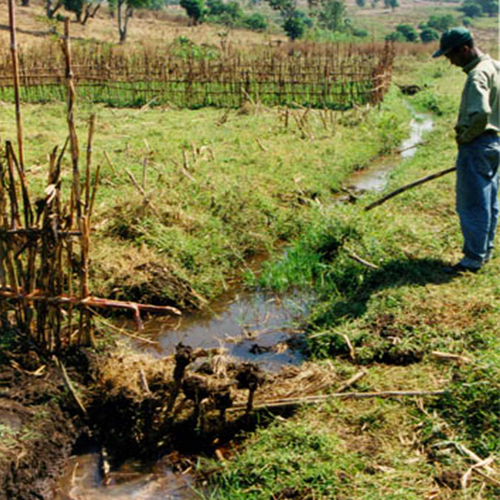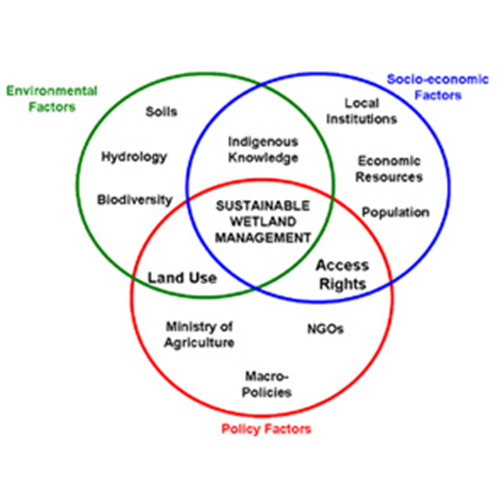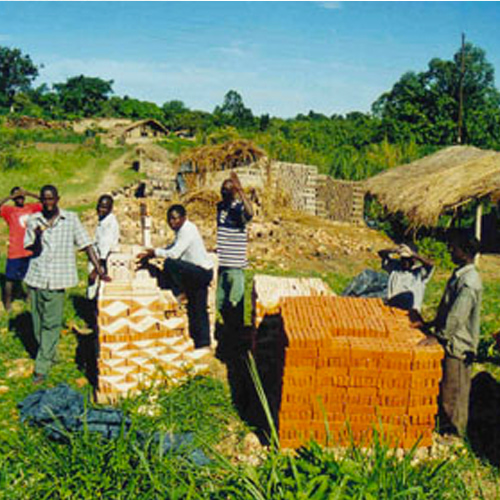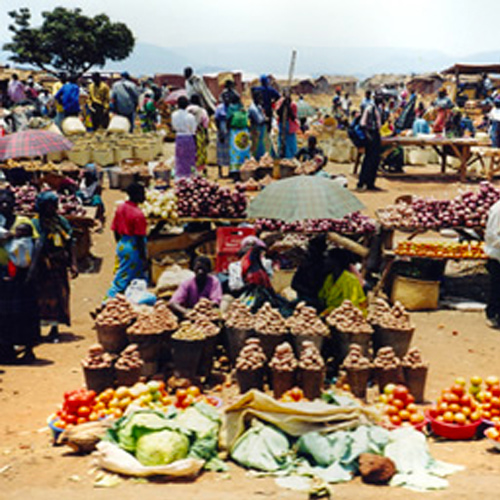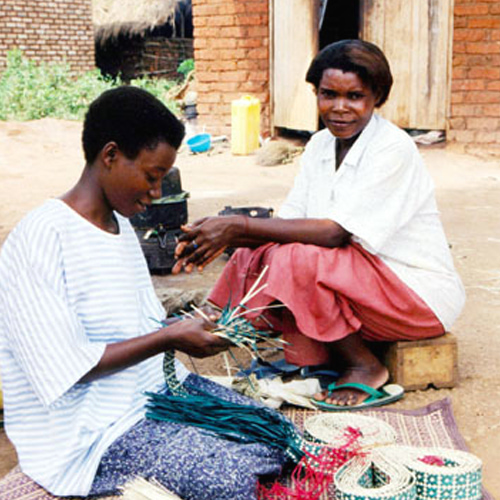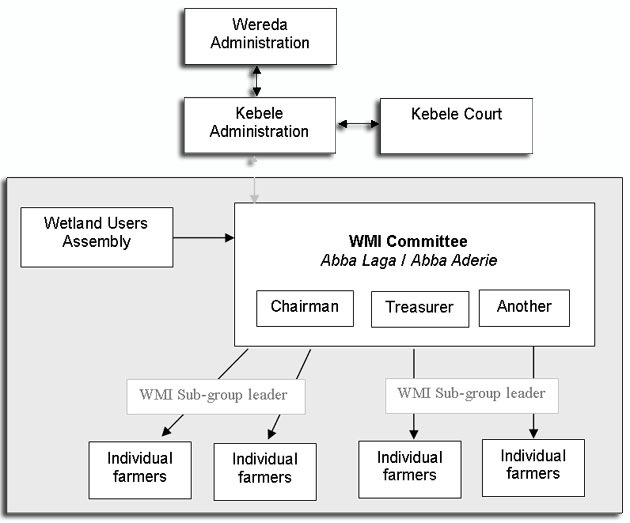Wetlands at SRC
Introduction
Wetland management for sustainable livelihoods has been a key concern of staff at SRC over many years. Building from the three-year Ethiopian Wetlands Research Project (EWRP) (1997-2000), SRC staff have helped develop one international organisation (Wetland Action) and one national institution (Ethio-Wetlands and Natural Resources Association). Both of the organisations have focused on sustainable wetland management and have undertaken a range of projects and studies. One key output of this work has been the Earthscan publication “Wetland Management and Sustainable Livelihoods in Africa”.
An over-riding aim of this work has been to change the paradigm of international thinking about wetlands from conservation to sustainable utilisation, generating a range of livelihood benefits for local communities. This approach is critical in order to address the UN Sustainable Development Goals, to manage the impacts from climate change and socio-economic processes, and at the same time to ensure the survival of wetlands.
Through collaboration with Wetland Action, SRC staff engaged in a global study of the interaction between agriculture and wetlands in order to identify new policies to address this area of tension and conflict. FAO published this study as “Scoping agriculture-wetland interactions: Towards a sustainable multiple-response strategy” (Water Reports 33).
Along with Ethio-Wetlands and Natural Resources Association (EWNRA), work has been undertaken on understanding traditional and modern institutions for sustainable wetland management in several parts of that country. Wetland and catchment management for sustaining wetland water supplies was also studied and contributions made toward the development of a new Ethiopian wetland policy in 2020.
Multiple use of wetlands to sustain a range of ecosystem services, within a landscape perspective, has been supported by SRC research, through a number of activities, with livelihood development impacting locally and more widely through trade in wetland produce.
SRC staff have worked with the international NGO Self-Help Africa (SHA) on development of the Functional Landscape Approach (FLA) in a number of countries in East and Southern Africa. This approach links enterprise development, community institutions and environmental management. In this way sustainable livelihoods can be developed which are both attractive and resilient in the face of climate change, natural disasters and economic volatility and also improve health, incomes and wellbeing.
Sustainable Wetland Management -Striking a Balance
A key focus of the work with wetlands is to change the paradigm of thinking about these areas from conservation to sustainable utilisation.
Indigenous Knowledge and Local Institutions
A focus on the role of indigenous knowledge and local institutions in wetland management and the achievement of sustainable livelihoods
Wetlands, Food Security and Enterprise
Wetlands play a critical role in the survival of many communities across the world, particularly in semi-arid areas
Climate Change and Wetlands
Wetlands play an important role in the carbon cycle and the loss of wetlands can contribute to global warming and climate change.
Wetland Policy
The need for policies to achieve the appropriate management of wetlands is now widely recognized as these areas are under pressure.
Gender, Socio-economics and Health
The benefits from wetlands may not be evenly distributed in communities but they can reach the disadvantaged and improve lives.
Wetland Rehabilitation and Functional Landscape
Loss of wetland has local and downstream impacts and can be addressed through the Functional Landscape Approach
Participatory Methods
Stakeholder participation in natural resource management and development strategies is fundamental to achieving long-term sustainability
Publications and Outputs
A range of dissemination methods have been used to share finding from this research.
